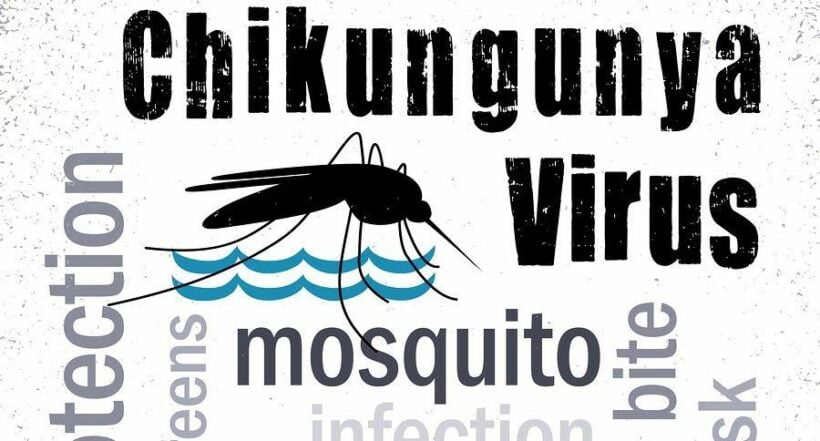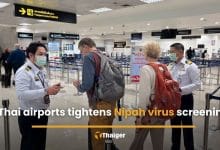Health warning: Chikungunya cases up in Thailand’s southern province

Thai health authorities are reporting 86 new cases of the Chikungunya virus in the last week alone. There have been 3,592 cases – nearly all in southern Thailand – this year. Here’s a few things to know about the Chikungunya virus…
- Chikungunya is a viral disease transmitted to humans by infected mosquitoes. It causes fever and severe joint pain. Other symptoms include muscle pain, headache, nausea, fatigue and rash.
- Joint pain is often debilitating and can vary in duration.
- The disease shares some clinical signs with dengue and zika, and can be misdiagnosed in areas where they are common.
- There is no cure for the disease. Treatment is focused on relieving the symptoms.
- The proximity of mosquito breeding sites to human habitation is a significant risk factor for chikungunya.
- The disease mostly occurs in Africa, Asia and the Indian subcontinent. However a major outbreak in 2015 affected several countries of the Region of the Americas.
People who have been in the southern provinces up to two weeks ago and are experiencing symptoms are being urged to contact medical staff and not purchase drugs over the counter to treat themselves.
Chikungunya is characterized by an abrupt onset of fever frequently accompanied by joint pain. Other common signs and symptoms include muscle pain, headache, nausea, fatigue and rash. The joint pain is often very debilitating, but usually lasts for a few days or may be prolonged to weeks. Hence the virus can cause acute, subacute or chronic disease.
Most patients recover fully, but in some cases joint pain may persist for several months, or even years. Occasional cases of eye, neurological and heart complications have been reported, as well as gastrointestinal complaints. Serious complications are not common, but in older people, the disease can contribute to the cause of death. Often symptoms in infected individuals are mild and the infection may go unrecognized, or be misdiagnosed in areas where dengue occurs.
A helpline is available on 1422.
Here’s The Thaiger’s tips avoid being bitten by mosquitos. The story is for Dengue fever but the same advice applies for Chikungunya virus as well.
Latest Thailand News
Follow The Thaiger on Google News:


























